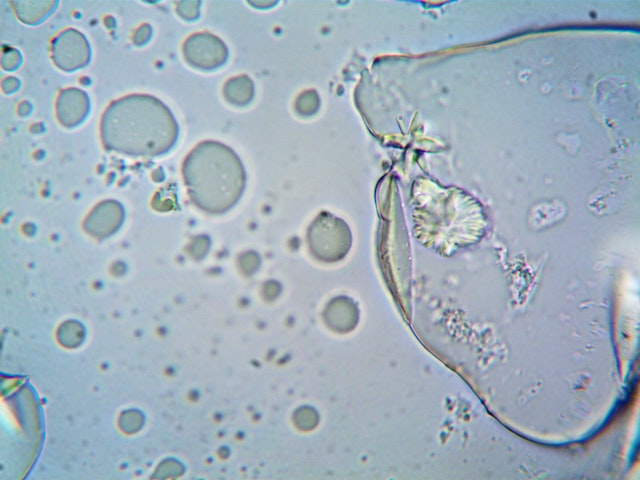How to perform a Scientific research experiment?
If you want to know how to perform a scientific research experiment, then you have come to the right place. In this article, we will give you a step-by-step guide on how to carry out an experiment so that you can obtain accurate and reliable results.
What is a Scientific research experiment?
A scientific research experiment is a set of procedures undertaken to test a hypothesis, usually involving the observation of variables. Scientific research experiments are used to answer questions about how the natural world works, and to develop new technologies.
The different steps in performing a Scientific research experiment
When you want to learn how to do a scientific research experiment, there are different steps that you need to follow. In order to have a successful and accurate experiment, it is important that these steps are followed correctly. Here are the different steps involved in performing a scientific research experiment:
1) Choose a topic or question that you want to investigate. It is important that you choose a topic that interests you, as this will make the research process more enjoyable. Once you have chosen a topic, you need to narrow it down to a specific question that you want to answer. This will be your hypothesis.
2) Research your topic thoroughly. You need to make sure that you have a good understanding of the background information on your topic before you begin your experiment. This will help you design your experiment more effectively and accurately.
3) Develop your hypothesis. This is the specific question that you want to answer with your experiment. Make sure that your hypothesis is testable and clear.
4) Design your experiment. This includes deciding what variables you will test, how you will control for other variables, and what type of data you will collect such as plant authentication, chemicals overview.
5) Conduct your experiment. Make sure that you follow your
What are the benefits of performing a Scientific research experiment?
There are many benefits of performing a Scientific research experiment and in Formulation and development. One benefit is that it allows you to test your hypothesis. A Scientific research experiment also allows you to control the variables in your experiment. This is important because it allows you to isolate the variable that you are testing. Additionally, performing a Scientific research experiment can help you to collect data. This data can be used to support or disprove your hypothesis.
How to design a Scientific research experiment?
When you are planning to do a scientific research experiment, there are many things that you need to take into account in order to design an experiment that will be successful. Here are some tips on how to design a scientific research experiment:
1. Choose a topic that you are interested in and want to learn more about. This will help you stay motivated throughout the experiment.
2. Do some background research on your topic so that you have a better understanding of what you will be doing. This will also help you come up with a hypothesis for your experiment.
3. Make sure that your hypothesis is testable. This means that you should be able to measure the results of your experiment in some way.
4. Design your experiment so that it is controlled. This means that you should only change one variable at a time so that you can isolate the effect of that variable on the results of the experiment.
5. Keep good records of your experimental data so that you can analyze it later and draw conclusions from it.
By following these tips, you can design a scientific research experiment that is well-planned and has a good chance of being successful.
How to carry out a Scientific research experiment
1. Choose a topic or question that you are interested in investigating. Make sure that your topic is something that can be studied using the scientific method.
2. Do some background research on your topic to gain an understanding of what is already known about it. This will help you to formulate your hypothesis or research question.
3. Develop a hypothesis or research question that you want to test in your experiment. A hypothesis is a predictions about what you think will happen in your experiment based on your research.
4. Design an experiment to test your hypothesis or research question. Make sure that your experiment is well planned and that you have all the necessary materials and equipment.
5. Conduct your experiment according to your plan. Be sure to carefully observe and record your results.
6. Analyze your results to see if they support or refute your hypothesis or research question. If you find that your results do not support your hypothesis, don’t despair! Often, scientific discoveries are
How to analyse the results of a Scientific research experiment
After you have completed your scientific research experiment, it is important to analyse the results in order to see if your results are valid. There are a few different ways to analyse the results of an experiment, and the method you choose will depend on the type of data you have collected.
If you have collected quantitative data, then you can use statistical methods to analyse your results. This will involve using a software package such as SPSS to input your data and run the appropriate analyses. If you have collected qualitative data, then you will need to use a different approach to analyse your results. This could involve using thematic analysis or another qualitative data analysis method.
Once you have analyzed your results, you need to write up your findings in a report or paper. This will involve discussing what your results mean in relation to your research question, and whether or not they support your hypothesis. You should also discuss any limitations of your study and make suggestions for future research.
Conclusion
As you can see, scientific research experiments are not as difficult as they may seem at first. By following the steps outlined in this article, you can be sure that your experiment is well designed and will produce accurate results. With a little practice, you'll be an expert researcher in no time!
.jpg)



Comments
Post a Comment